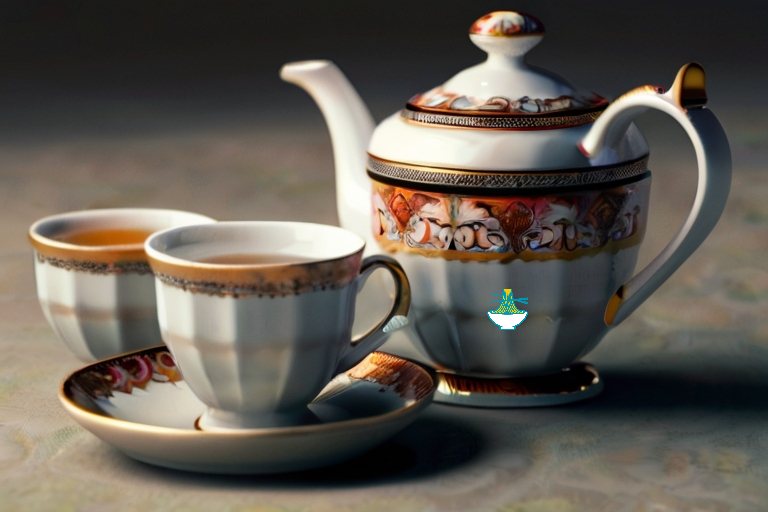Indulge in the timeless tradition of a hearty morning brew with our England English Breakfast Tea. Crafted from the finest tea leaves, this robust blend delivers a rich, full-bodied flavor that invigorates the senses and sets the perfect tone for your day. Savor the harmonious combination of malty notes and subtle hints of caramel, accompanied by a brisk and satisfying finish. Whether you enjoy it with a splash of milk or a slice of lemon, our English Breakfast Tea promises to be a comforting companion to your morning routine or a revitalizing pick-me-up any time of day. Experience the essence of England in every sip with this beloved classic.
While traditional English Breakfast Tea is typically a blend of several black teas, each tea company or individual may have their own specific recipe or blend to achieve the desired flavor profile. Here's a basic recipe to create your own version of England English Breakfast Tea:
Ingredients:
- Assam tea leaves: 2 parts
- Ceylon tea leaves: 1 part
- Kenyan tea leaves: 1 part
Instructions:
1- Measure out the desired quantity of each type of tea leaves according to the ratio provided above.
2- Combine the tea leaves in a clean, airtight container or tea caddy.
3- Store the tea blend in a cool, dry place away from direct sunlight to maintain freshness.
4- To brew a cup of England English Breakfast Tea, bring fresh, filtered water to a rolling boil.
5- Measure out approximately 1 teaspoon (2.5 grams) of the tea blend per 8 ounces (240 ml) of water.
6- Place the tea leaves in a teapot or infuser.
7- Pour the hot water over the tea leaves, ensuring they are fully submerged.
8- Steep the tea for 3 to 5 minutes, depending on your preference for strength.
9- Strain the tea leaves or remove the infuser.
10- Serve hot with optional additions such as milk, sugar, or lemon, according to personal taste.
Feel free to adjust the ratio of tea leaves or experiment with different varieties to customize the flavor to your liking. Enjoy your homemade England English Breakfast Tea!
Nutritional Values:
As tea leaves are primarily used to brew a beverage rather than consumed directly, they don't typically have standardized nutritional labels like other food products. However, I can provide some general information about the nutritional content of the individual ingredients used in an English Breakfast Tea blend:
Assam Tea Leaves:
- Assam tea leaves are rich in antioxidants, particularly flavonoids such as catechins and epicatechins, which have various health benefits.
- They contain some caffeine, providing a mild stimulant effect.
- Assam tea leaves may also contain small amounts of vitamins and minerals, including vitamin C, vitamin K, potassium, and manganese.
- Assam tea is generally low in calories, with negligible amounts of fat, protein, and carbohydrates.
benefits:
- Rich in antioxidants, particularly flavonoids, which help combat oxidative stress and inflammation in the body.
- Contains caffeine, providing a gentle energy boost and improving alertness.
- May support heart health by improving blood flow and reducing the risk of cardiovascular diseases.
- Some studies suggest that the polyphenols in Assam tea may have anti-cancer properties and support immune function.
Ceylon Tea Leaves:
- Ceylon tea leaves, like Assam tea, are abundant in antioxidants, particularly catechins, which contribute to its health-promoting properties.
- They also contain caffeine, albeit typically in slightly lower amounts compared to Assam tea.
- Ceylon tea may offer small amounts of vitamins and minerals, including potassium and manganese.
- Similar to Assam tea, Ceylon tea is low in calories and does not contain significant amounts of macronutrients.
benefits:
- High antioxidant content helps protect cells from damage caused by free radicals and may reduce the risk of chronic diseases.
- Contains caffeine, which can enhance cognitive function, mood, and concentration.
- Supports hydration and may contribute to overall fluid intake.
- Some research suggests that regular consumption of Ceylon tea may help lower cholesterol levels and improve heart health.
Kenyan Tea Leaves:
- Kenyan tea leaves share similar nutritional properties with Assam and Ceylon teas, including high antioxidant content and a moderate caffeine content.
- They may also provide trace amounts of vitamins and minerals, such as potassium.
- Kenyan tea is low in calories and lacks significant macronutrients.
benefits:
- Abundant in antioxidants that help neutralize harmful free radicals in the body, protecting against cell damage and oxidative stress.
- Contains caffeine, which can boost metabolism and increase alertness and focus.
- Supports hydration and may aid in digestion.
- Preliminary studies indicate that the polyphenols in Kenyan tea may have antimicrobial properties, helping to fight off harmful bacteria and viruses.
Keep in mind that the nutritional content of brewed tea depends on factors such as steeping time, water temperature, and the amount of tea used. Additionally, any added ingredients like milk or sugar will contribute additional calories and nutrients to the final beverage.


Comments